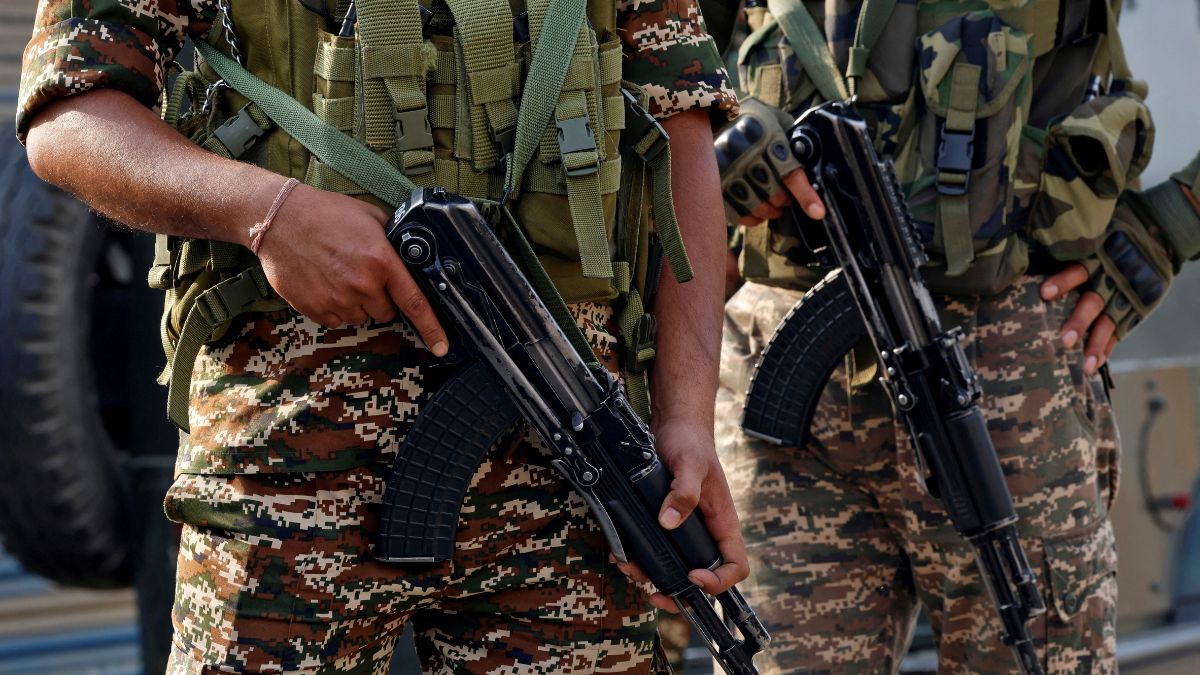In the early hours of May 7, 2025, India launched a series of precision strikes targeting terrorist infrastructure in Pakistan and Pakistan-occupied Kashmir (PoK).
Dubbed Operation Sindoor, the action came in direct response to the Pahalgam terror attack on April 22 that left 26 civilians dead.
As tensions flared, what stood out in New Delhi’s military response was its careful calibration. The Indian government described the operation as “measured, focused, and non-escalatory,” making it clear that its targets were not Pakistani military assets or civilian infrastructure but terrorist sites alone.
This deliberate restraint reflects the core of India’s enduring strategic doctrine: a policy of controlled retaliation that projects strength without inviting uncontrolled escalation.
In an increasingly volatile subcontinental security environment, India’s doctrine of strategic restraint continues to play a pivotal role.
What is strategic restraint?
India’s doctrine of strategic restraint is not codified in official policy documents but has been a consistent thread in its approach to regional conflict. It prioritises:
Avoidance of full-scale war, particularly with nuclear-armed adversaries.
Use of military force for targeted, retaliatory purposes.
Maintenance of diplomatic legitimacy and moral high ground.
Calibration of responses to prevent triggering nuclear thresholds.
This doctrine is not passive. Over the years, India has incrementally evolved from non-action to limited military operations that still fall within the framework of strategic restraint.
Operation Sindoor is the latest example in a continuum of responses intended to deter terrorism without plunging the region into open conflict.
From Kargil to Balakot
India’s strategic restraint has defined its past responses to cross-border attacks:
Kargil War (1999): Despite Pakistan’s infiltration across the Line of Control (LoC), India confined its military response to its side of the border.
**2001 Parliament attack** : Operation Parakram saw massive troop mobilisation but no kinetic action.
2016 Uri attack: Marked a doctrinal shift with India conducting “surgical strikes” across the LoC targeting terrorist launch pads.
**2019 Pulwama attack** : Led to the Balakot airstrike , India’s first air operation deep inside Pakistani territory since 1971, aimed at a Jaish-e-Mohammed terror camp.
Each of these responses has reflected a balance between demonstrating resolve and maintaining escalation control.
A calibrated strike witnessed in Operation Sindoor
According to the Indian Ministry of Defence, Operation Sindoor targeted nine sites linked to terror groups operating from Pakistani soil. Importantly, Indian officials stressed that these were not Pakistani military posts.
“Our actions have been focused, measured and non-escalatory in nature. No Pakistani military facilities have been targeted. India has demonstrated considerable restraint in selection of targets and method of execution,” said the press release.
The strikes were reportedly carried out using air-launched precision munitions and monitored by Prime Minister Narendra Modi through the night.
The Indian response was swift, but it also appeared to be legally and diplomatically calculated.
Officials reportedly informed key international allies, including the United States and France, and highlighted the limited scope of the operation.
The Indian Embassy in Washington DC said that the National Security Adviser Ajit Doval spoke to US Secretary of State Marco Rubio “shortly after” the strikes were carried out.
Why ‘measured’ this time?
Several strategic calculations informed India’s decision to adopt a restrained yet assertive posture:
Avoiding escalation with a nuclear-armed adversary
Pakistan’s possession of tactical nuclear weapons creates a high-risk environment for any military operation.
India’s decision to strike terror camps while avoiding military installations was intended to deny Islamabad a justification for full-scale retaliation.
Maintaining diplomatic legitimacy
By framing the action as a counter-terror operation and ensuring it adhered to the principle of proportionality, India sought to remain within the bounds of international law.
Under Article 51 of the UN Charter, states have the right to self-defence — a principle India highlighted in its communication with global stakeholders.
India’s evolving military posture underlines a subtle shift — from reactive strategic restraint to proactive calibrated deterrence.
This approach allows New Delhi to:
Send a clear signal to terror groups and their patrons.
Retain the initiative in the conflict escalation ladder.
Demonstrate to domestic audiences that India will not absorb attacks passively.
Retain global goodwill as a responsible actor.
Operation Sindoor reaffirms New Delhi’s intent to respond to cross-border terrorism with precision, purpose and proportion. By carefully choosing the time, place, and nature of its response, India signals strength while avoiding strategic overreach.
The challenge now lies in managing post-strike tensions and ensuring that the deterrence message is received.
Also Watch:
With inputs from agencies


)

)
)
)
)
)
)
)
)



